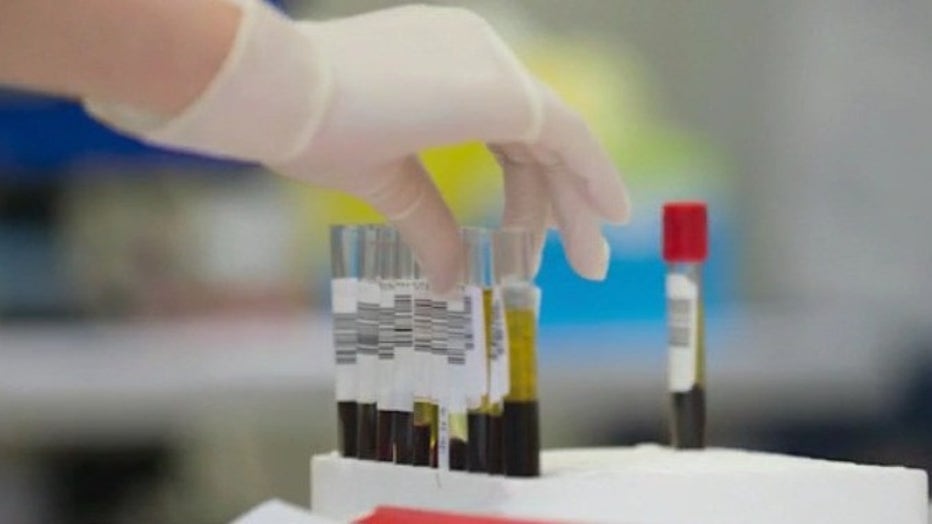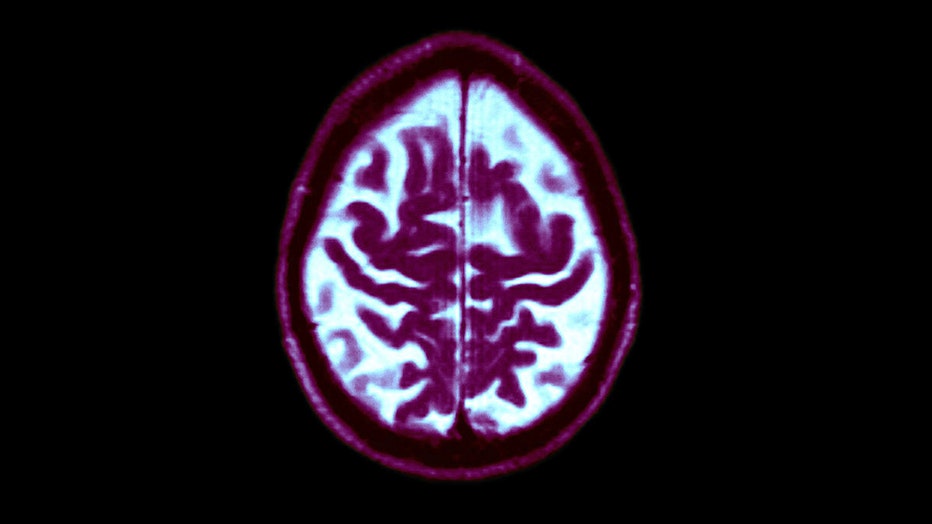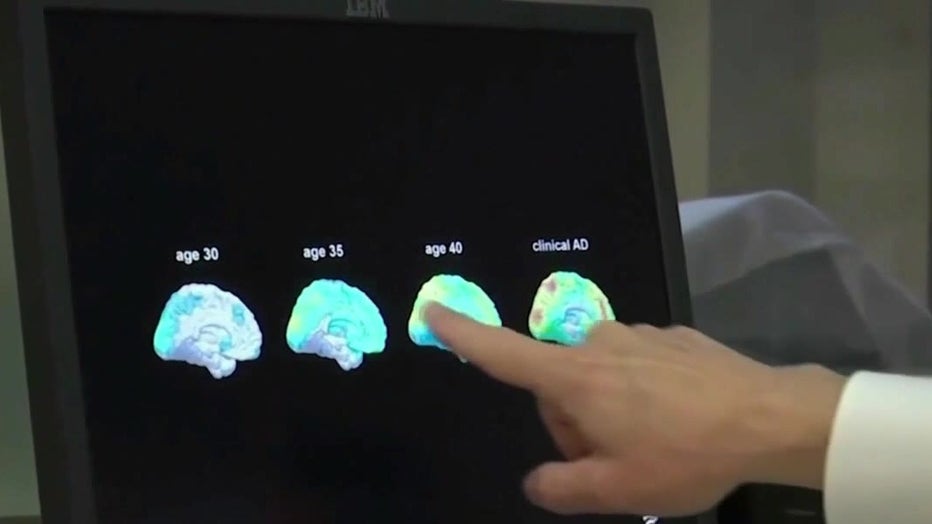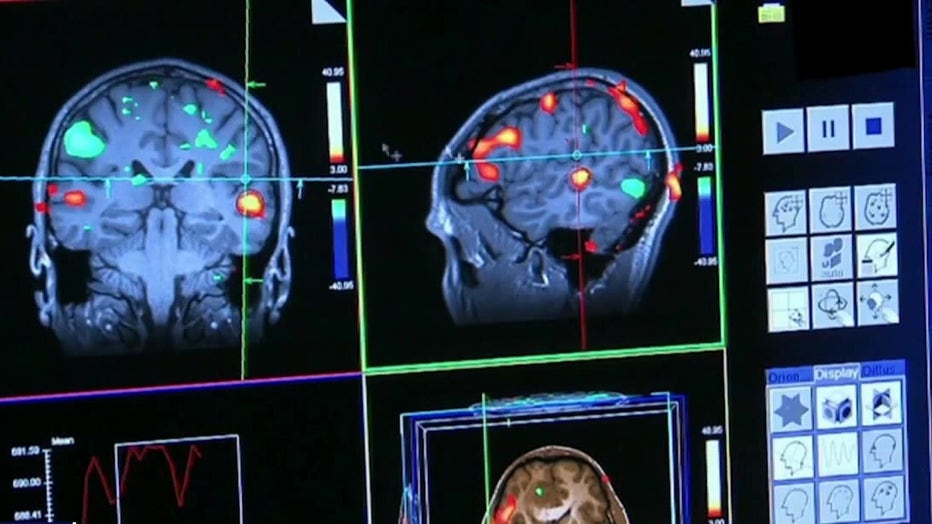Alzheimer’s blood tests could diagnose faster, more accurately | How it works

Behind the new Alzheimer's blood test
FOX 5 NY's Duarte Geraldino has the latest on the revolutionary new test.
NEW YORK - There's a new blood test that could help doctors diagnose Alzheimer’s disease faster and more accurately, researchers reported Sunday.
More than 6 million people in the United States and millions more around the world have Alzheimer’s, the most common form of dementia.
It can be tricky to tell if memory problems are caused by Alzheimer’s though.
Buildup of a sticky protein called beta-amyloid is usually a telltale sign that a person has Alzheimer's. However, identifying this biomarker often requires hard-to-get brain scans or an uncomfortable spinal tap.
New study suggests blood tests for Alzheimer’s can be simpler and faster
In a study done by Lund University, patients in Sweden who visited either a primary care doctor or a specialist for memory complaints got an initial diagnosis using traditional exams, gave blood for testing and were sent for a confirmatory spinal tap or brain scan.
According to the study, blood testing was far more accurate.
The primary care doctors’ initial diagnosis was 61% accurate and the specialists’ 73% — but the blood test was 91% accurate, according to the findings, which were published in the Journal of the American Medical Association.

Being diagnosed with Alzheimer's
Many patients are diagnosed based on symptoms and cognitive exams.
Even specialists can struggle to tell if Alzheimer’s or something else is to blame for a patient’s symptoms.
FOX 5's Duarte Geraldino spoke to Ira Kleiner who says he and his wife suspected Alzheimer's after he blacked out at work, forgetting all of his passwords.

FILE - Late Onset Alzheimer's Disease Senile Dementia. (BSIP/UIG Via Getty Images)
He says he underwent numerous cognitive tests, scans and other procedures over the course of six months in order to get a diagnosis.
"We really had to jump through hoops to get answers.." his wife said.
The new Alzheimer's tests might have reduced the number of hoops for him and helped doctors design a treatment for him sooner.
Turns out his dementia was not Alzheimer's.
How does the test work?
The new blood test looks for a protein that sprouts into tangles in the brains of people with Alzheimer's.
Measuring it was found to give the most accurate assessment of Alzheimer's pathology.

Scientists are excited by their potential, but the tests aren’t widely used yet because there’s little data to guide doctors about which kind to order and when.
The U.S. Food and Drug Administration hasn’t formally approved any of them and there’s little insurance coverage.
Those drugs are found to be most effective during their earliest stages of decline.
Which blood tests for Alzheimer’s work best?
There’s almost "a wild West" in the variety being offered, said Dr. John Hsiao of the National Institute on Aging. They measure different biomarkers in different ways.

Doctors and researchers should only use blood tests proven to have a greater than 90% accuracy rate, said Alzheimer’s Association chief science officer Maria Carrillo.
Who should use blood tests for Alzheimer’s?
In order to be eligible for the newer treatments for Alzheimer's disease, you have to show that you're in the beginning stages of cognitive decline.
Plus, you have an amyloid burden.
The Associated Press contributed to this report.

